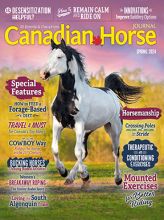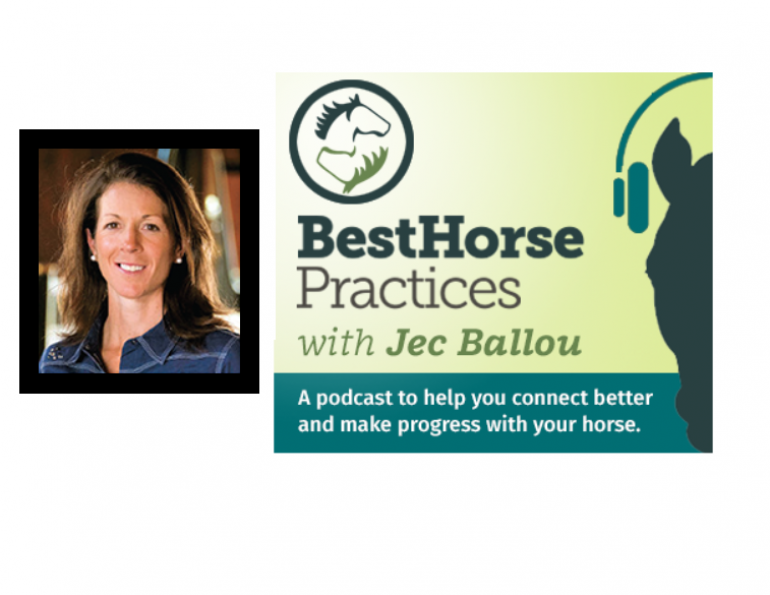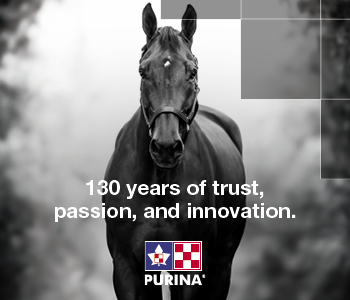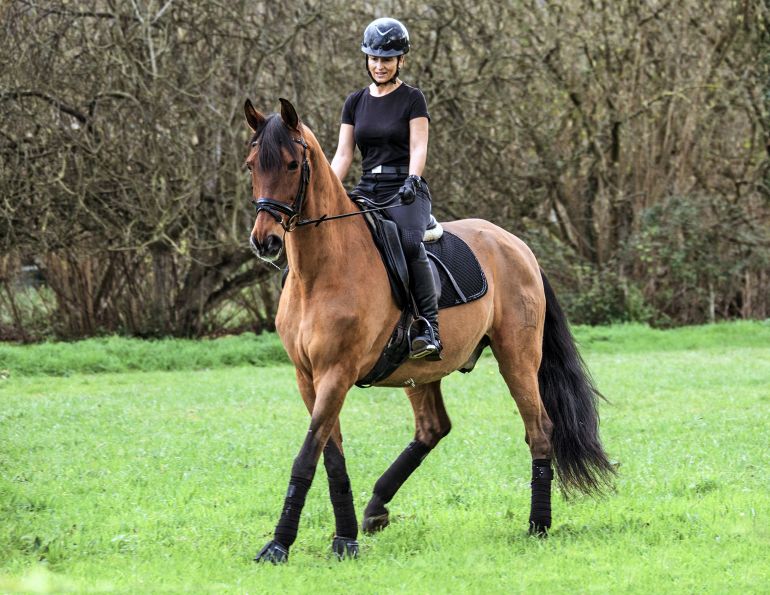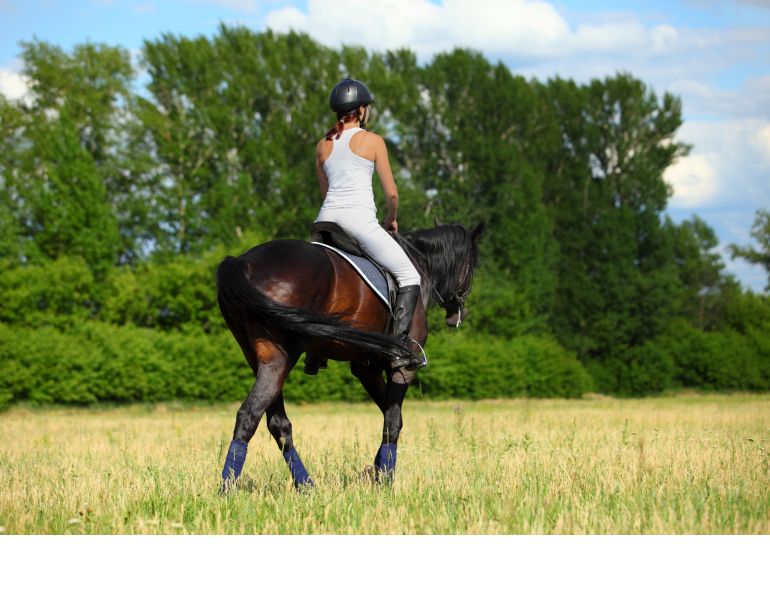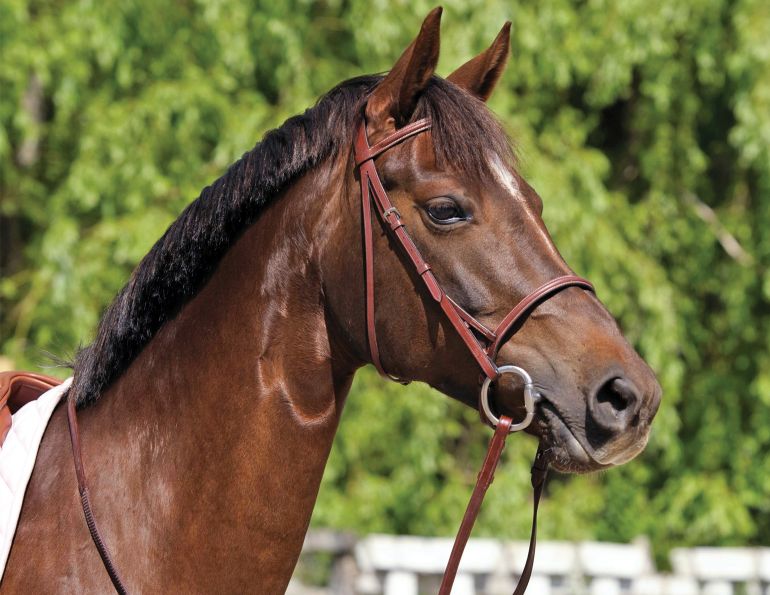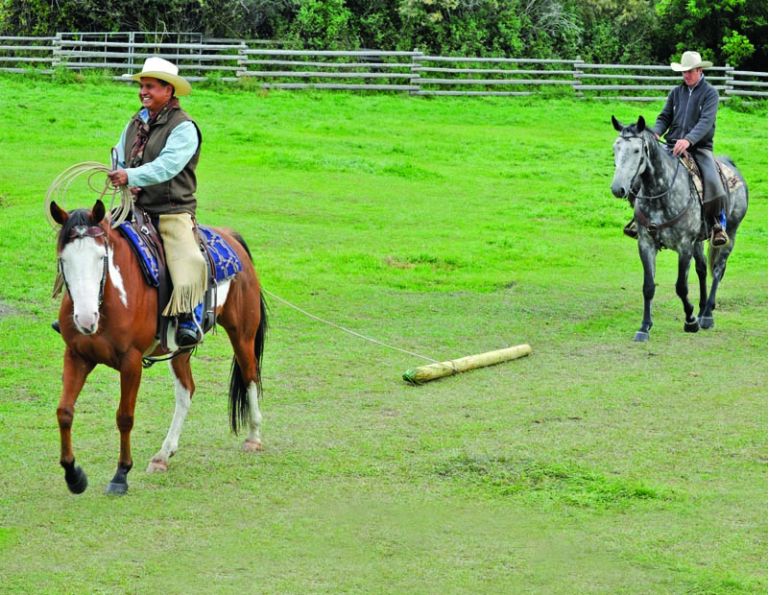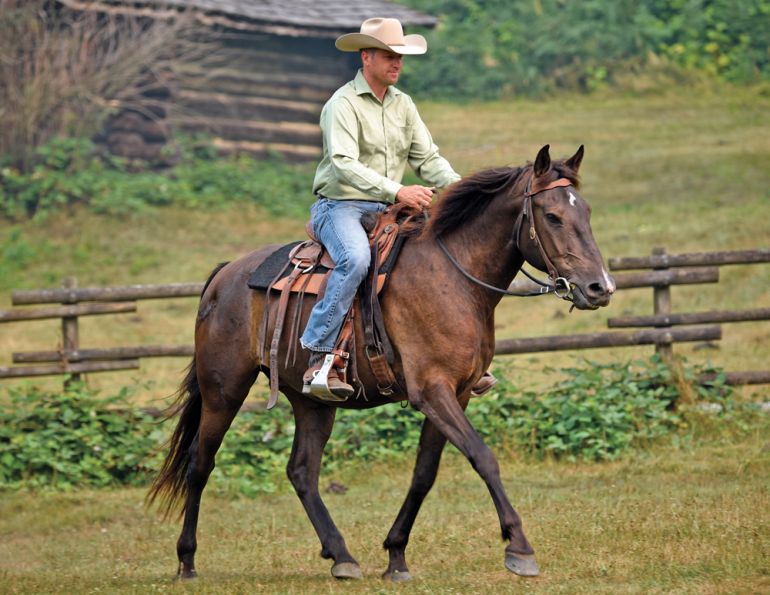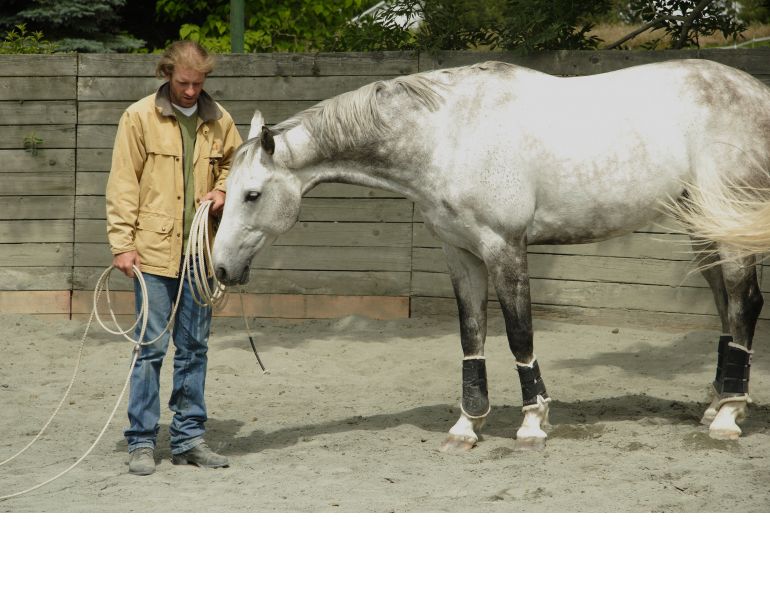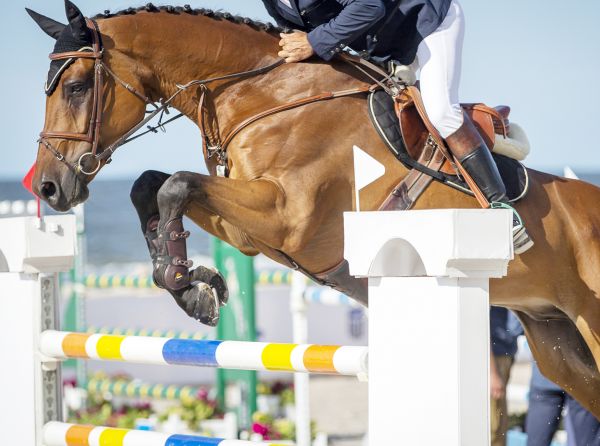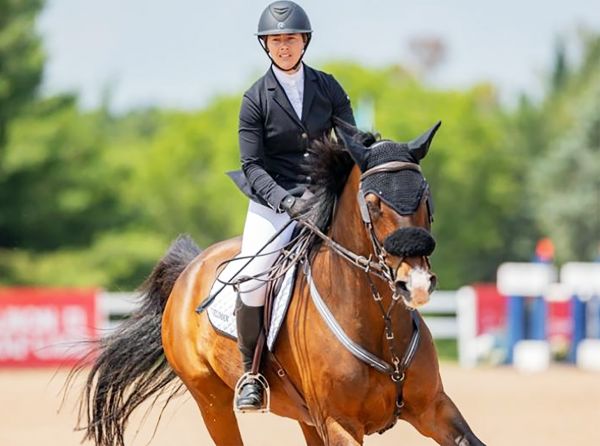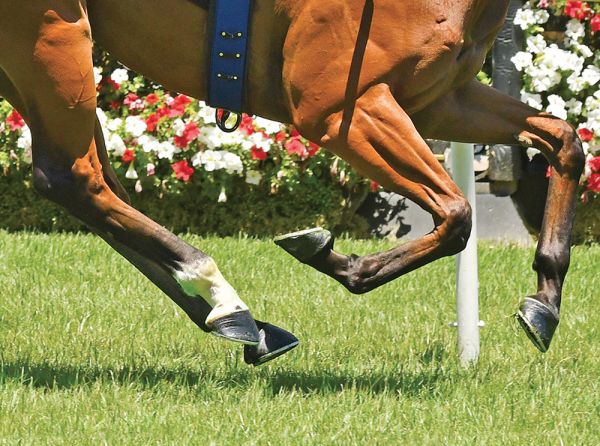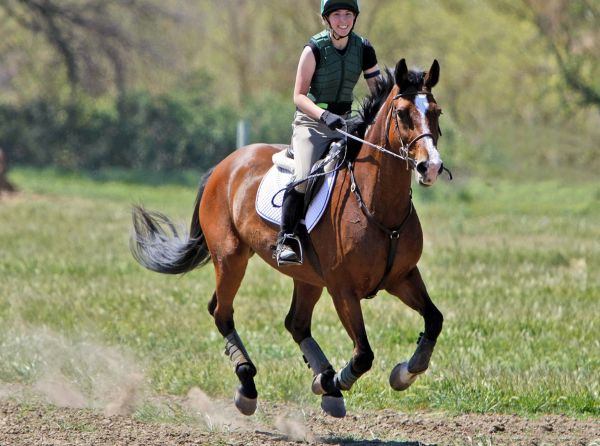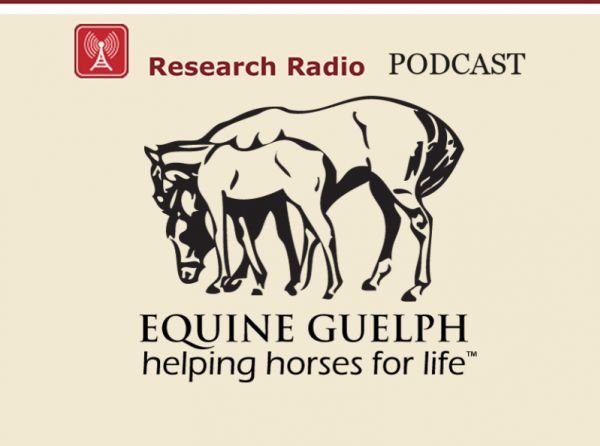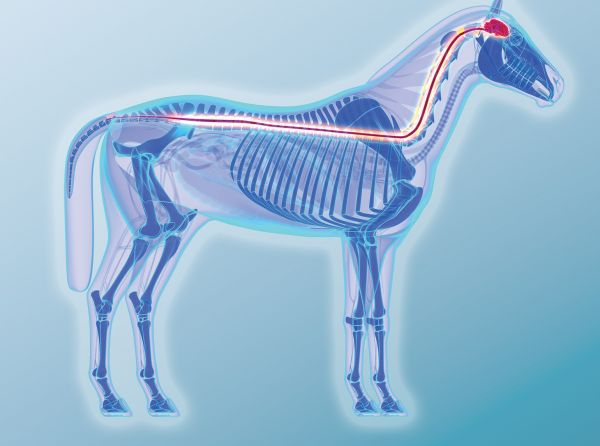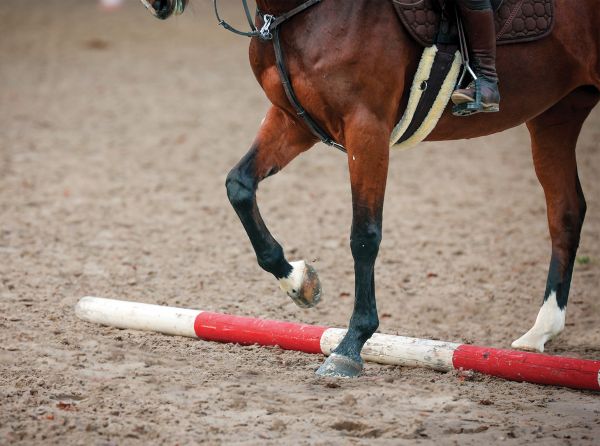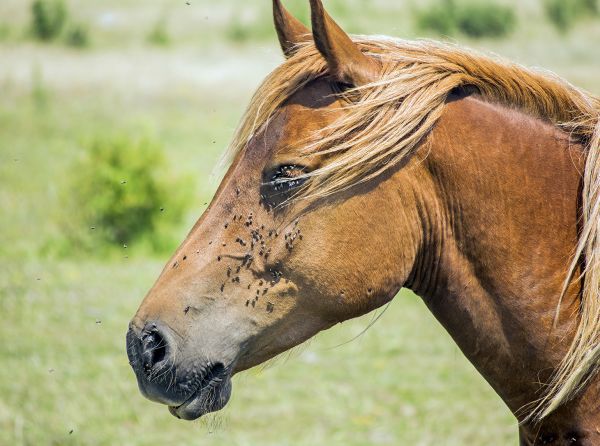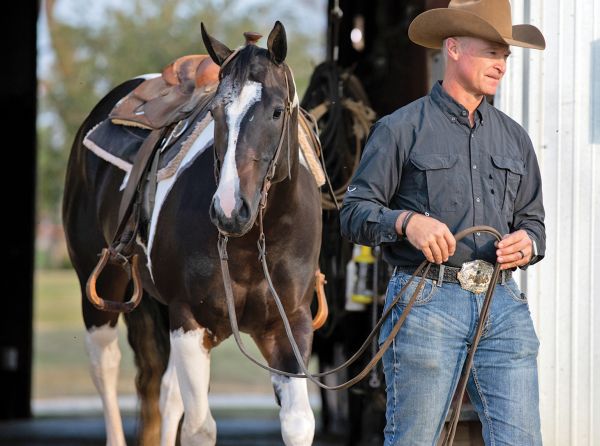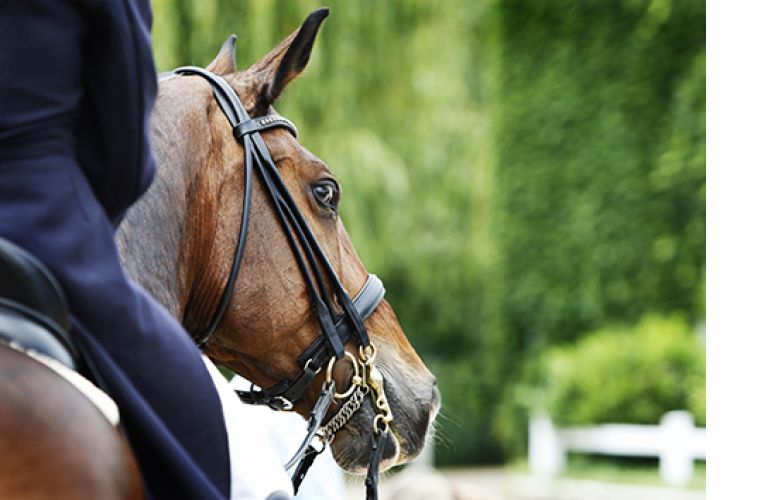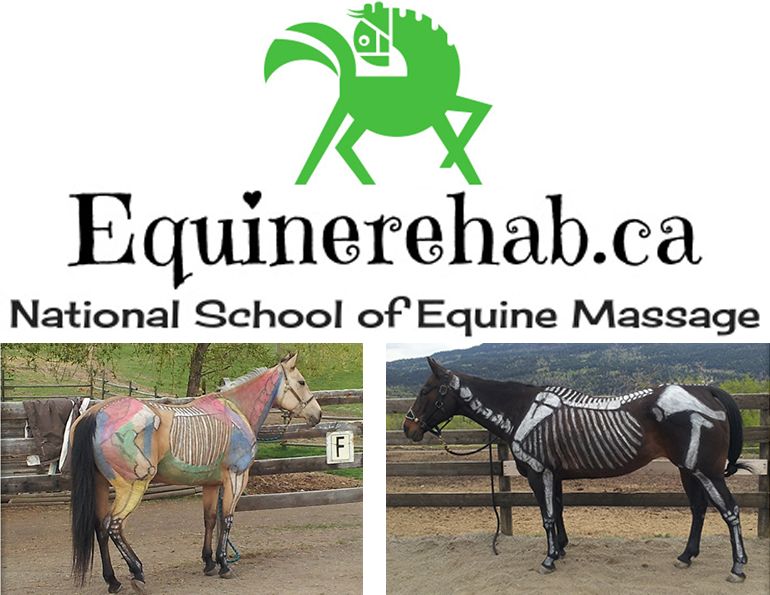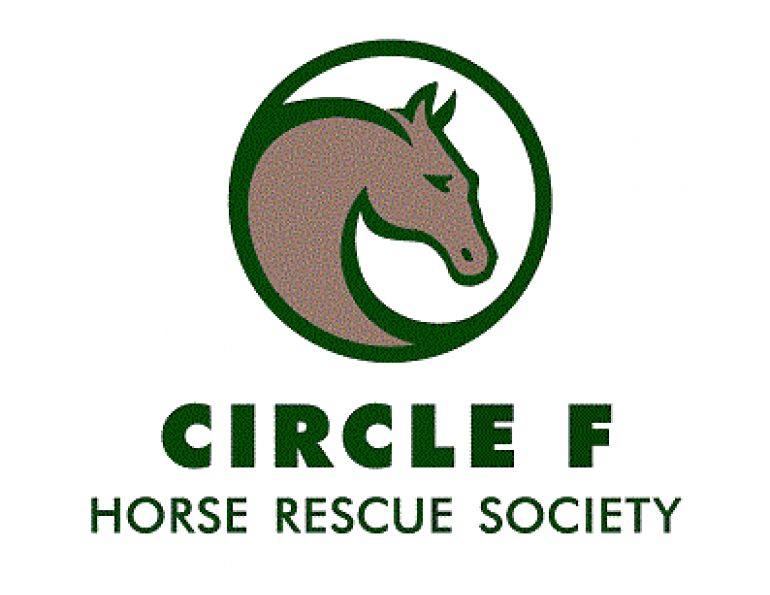By Will Clinging
It is not uncommon for a trainer to say that the horse is a flight animal. That is a simple enough concept but how do we deal with this instinct?
Most horses use flight as their primary defense mechanism. Fight is usually their secondary instinct for survival. When faced with danger or perceived danger a horse will instantly run away. There is no thought process that triggers this. In fact there is no thought process at all when in flight mode. A horse will essentially run blind with no regard for personal safety as long as he can escape and survive.
When we train our horses we can use this to help the horse learn. By giving the horse the option to move his feet, he can think about what we are asking him. The key is not to make them stand still — it is to control where they go as deliberately as possible. The slower a horse is moving the more capable he is of processing information.
When he can move his feet he knows that he can utilize his flight instinct if he feels too threatened. As long as the option is available he can deal with the stress he is faced with unless it becomes overwhelming.
If he cannot move his feet when stressed he will feel he has no other option but to fight. This secondary survival reaction varies from kicking, biting, striking, and pulling back to bucking, bolting, freezing up, or throwing themselves down. Essentially they will do whatever it takes to stay alive. They feel cornered and these secondary instincts can be very sincere in their delivery.
There are some horses that have a stronger fight instinct than flight instinct and in these horses it is important to encourage as much movement as possible. Stallions, alpha mares, some ponies, or horses that are very self-confident can be less flighty than most geldings and less dominant, less confident horses.
If you think your horse is a fighter not a runner, you do need to approach him differently than an average horse. They are often more stubborn and need to be approached with more patience. They are often likely to be slow to accept new concepts.
Although they may not be as willing to learn, once they do accept something they will have little trouble with it again. These horses need more persuasion and less coercion. Often we need to slow down and expect less from them to encourage more effort and less resistance.
The horse that is inclined to fight can be a little less predictable so it’s a good idea to become familiar with the horse’s tolerance level. They will only accept so much before they decide they will challenge what you are asking of them. They need to know that you are a mentally strong leader that will be fair. It is important not to directly pick a fight. They are happy to oblige but may resent you if the situation does not have a satisfactory result. Once you have a bolder horse convinced that you are worthy of his respect, he will likely be a very reliable horse.
Horses, whether they are inclined to run or fight, otherwise learn in basically the same way. They will both anticipate punishment if not enough emphasis is placed on encouraging them to be correct. When we can help them be correct in the first place they will not need to be constantly corrected. If your horse is too quick to run away or to fight, it is probably something you caused. Be critical of your own actions so you do not force your horse to instinctively protect himself. Changing the way you cue your horse may be enough to keep him from getting confused or frightened. Present yourself so your horse can respond comfortably, not so he reacts defensively.
It is important to study your horse and his behaviour patterns. He is constantly telling you how he feels. When you understand how your horse thinks, learns and reacts, you will be more capable and prepared to help him be the horse you want.
Main photo: Robin Duncan Photography


